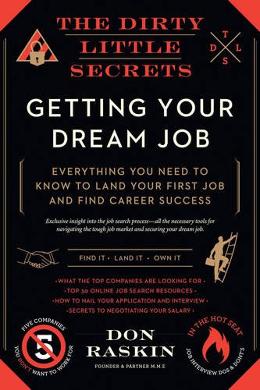It’s more often that a prospective employer turns you down than the other way around. But what if you’re the one who decides you’re no longer interested in a job you’ve put yourself in the running for? Remember, nobody likes rejection, and that includes the hiring manager. So if you do plan to turn a company down, you need to do it well, because you want your name and reputation to be in pristine condition at all times. Here’s how.
Say “No” As Soon As You Can
If after your interviews the job doesn’t sound like something you’re interested in—or the people you’ve met are not a good match, or the company culture isn’t right for you—then reject the company before you are offered a position. Make sure, though, that you absolutely, positively do not want the job, and do not want to work for the company before you take this step.
If you’re unsure, then just continue the process until the company makes you an offer. Then, after careful consideration, you can call the person who made you the offer and give him or her strong reasons why you won’t be taking the job. Remember, the person offering you the position wants to hear the truth, and you shouldn’t leave him or her wondering what went wrong.

If you know in your heart of hearts that there’s no way you can see yourself waking up every day and going in to the job you’ve been interviewing for, you owe it to yourself and the company to stop the interview process. Otherwise, you’re wasting your time when you could be looking for a job you really do want, and you are wasting the company’s time, too. The company will not be happy if you go through several rounds of interviews and wind up rejecting the job for reasons you could’ve stated earlier.
As a hiring manager, if I go through the interview process with a candidate, and he or she comes in and meets with five people on the interview team, and then, when a job is offered, the response is something like, “No thank you, I really wanted to work for a company in the suburbs so I don’t have to commute,” you can be sure it will annoy everybody involved.
To be fair, maybe the candidate came to that conclusion midway through the hiring process. But if you interview for a job you decide just don’t want under any circumstances—whether it’s due to issues with the role itself, the company, or the people you meet with, an email like this one is all it takes to let the interviewer know you’re longer interested:
Dear [hiring manager’s name],
Thank you very much for your time yesterday. I enjoyed meeting with you and discussing the opportunity. After learning more about the job and its responsibilities, I have decided that the position is not something that is right for me. As I result, I would like to withdraw my candidacy in order for you to move forward with someone who would be a better fit. Thank you again and good luck with filling the position.
Sincerely,
[Your name]
The hiring manager will appreciate your honesty, but most of all he or she will appreciate the chance to move forward in a more positive direction and find a candidate who does want the job.
What (Not) To Do When The Interview Experience Turns Sour
If you feel that the interview process hasn’t been fair to you for whatever reason, it’s best to consider it a good learning experience and just move on. Don’t dwell on it. Nothing good will come from getting mad at the interviewer and saying something you will regret.
Edward was being considered for an account job. He had a good interview with the first person he met with on my staff and then came in for an interview with a second, higher-level person. The interview had been going well until Edward was asked about his former boss. He indicated that there was a clash of egos, and after a few minutes of discussing this issue, the interviewer realized it was time to move on.
But Edward was stuck on this and couldn’t move forward. As the interview progressed, he became more and more unhinged. And then it happened: He was asked a question he really didn’t like about the strength of his work ethic. At that point, he stood up, collected his papers, announced that the interview was over, and walked out.
It didn’t end there, though. The next day, Edward sent a letter to me and the other partners at our agency. In his two-page letter of complaint against the interviewer, he stated that the interviewer was “dismissive” and then added, “She needs better management training.” And these were some of the nicer things that he said about her.
It goes without saying that you should absolutely never take this approach—nothing good will come of it. But even in less over-the-top situations, you may walk away from a job process that’s turned you off and feel tempted to explain why. It probably isn’t worth it.
You may feel you’ve been misunderstood, but the truth is that you aren’t going to get the management team to change their minds about you. You’re certainly not going to get invited back for another interview. And worse still, you aren’t going to garner a good reputation in your industry. So if you’re frustrated and do feel the need to speak your mind, write the email, read it over, feel better about yourself—and then delete it.
But do not hit send. Even though you believe you’re in the right, the people receiving it will likely see it as confirmation that you were a poor candidate. Imagine your dream job comes up five years down the road, you send in your résumé, and it winds up in the hands of the person you called out in a letter to his or her bosses. Trust me, that person will remember you.
This article is adapted from The Dirty Little Secrets of Getting Your Dream Job. Copyright © 2016 by Don Raskin. It is reprinted with permission.
